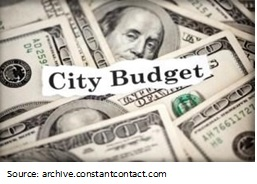When the DC Council unanimously approved the city’s budget yesterday, they put the final seal on a plan developed collaboratively with Mayor Bowser to invest in homeless services, affordable housing, workforce development, and other areas.
 The budget originally proposed by Mayor Bowser in April contained significant new investments in many of these areas, and additional funding was added during DC Council “mark ups” earlier this month. The final budget approved yesterday went even further, by fully funding the new Strategic Plan to End Homelessness and increasing resources for affordable housing and education.
The budget originally proposed by Mayor Bowser in April contained significant new investments in many of these areas, and additional funding was added during DC Council “mark ups” earlier this month. The final budget approved yesterday went even further, by fully funding the new Strategic Plan to End Homelessness and increasing resources for affordable housing and education.
The highlights of the final budget include the following:
Tremendous Progress on the Plan to End Homelessness
- New capital and leasing funds will support replacement of the DC General Shelter.
- The budget will help 455 individuals leave shelter through Rapid Re-Housing (RRH).
- A new Daytime Service Center will give homeless individuals a place to go during the day.
- $6.6 million will house 365 individuals and 110 families needing Permanent Supportive Housing (PSH), which combines long-term affordable housing and case management for residents who have been homeless a long time and have significant disabling conditions.
- $4 million will go to Targeted Affordable Housing for 368 individuals and 147 families. This new initiative helps residents who either need help paying rent after their short-term RRH subsidy ends, or who are in PSH and no longer need intensive services but still need help paying rent.
- The budget provides $500,000 to help homeless parenting/pregnant teens under 18.
- More resources will go to emergency shelter, which has been underfunded in recent years, leading to chaotic shifts of resources each winter to meet the need.
Record Funding for Affordable Housing
- $100 million for the Housing Production Trust Fund will support 1,000 or more homes per year.
- $7.4 million for rental assistance (the Local Rent Supplement Program) will make housing affordable to very low-income residents. $2.4 million will be tied to 200 apartments built with the Housing Production Trust Fund, and $5 million will help 300 families pay rent in the private market.
- Altogether, local housing funding will total over $200 million, a record level.
Protecting Families with Children Facing Loss of Income Assistance
- The budget plan extends income and employment assistance for one year to more than 6,000 families in TANF. This will prevent 13,000 children from falling deeper into poverty.
- It also gives the mayor and the new human services leadership a year to address a troubled TANF program that has not served families well.
- The budget also provides time to develop a time limit extension policy. Some 44 states’but not DC’offer time limit extensions, recognizing that some families need more time to move to self-sufficiency.
“At-Risk” Funding Will Follow DCPS Students Next Year
- Nearly 40,000 students in DCPS and charter schools fall into an “at-risk” funding category adopted for the current school year. The new budget requires that DCPS’ at-risk funding will flow next school year based on each school’s at-risk student population’so that each school will get its fair share of this funding.
- Schools in Wards 1, 4, 7, and 8 will see more at-risk funding next year as a result of proper distribution.
- The funds will be used for a variety of allowable purposes, including extending the school day, related arts programming and supplies, staffing, and technology.
Investment in New Job Training Models
- The budget includes $500,000 to establish a Career Pathways Innovation Fund, to begin testing and expanding new models to blend adult literacy and occupational training.
- The budget also adds $1.5 million for FY 2017 and subsequent years to design, pilot, and implement effective programs that create adult career pathways and improve the performance of adult education and training programs.
The Council will take a second and final vote on the Budget Support Act on June 16. That is the part of the budget that outlines changes in law needed to implement new proposals (such as a change in tax policy or in the TANF time limit). Based on a Wednesday court decision on DC’s budget autonomy law, the Council may also vote a second time on the Budget Request Act’the dollars and cents part. Without budget autonomy, that part of the budget gets voted on only once before going to Congress. But it is not entirely clear just yet how the court decision will play out.
For more background on these second votes, stay tuned to the District’s Dime next week.
To print a copy of today’s post, click here.
